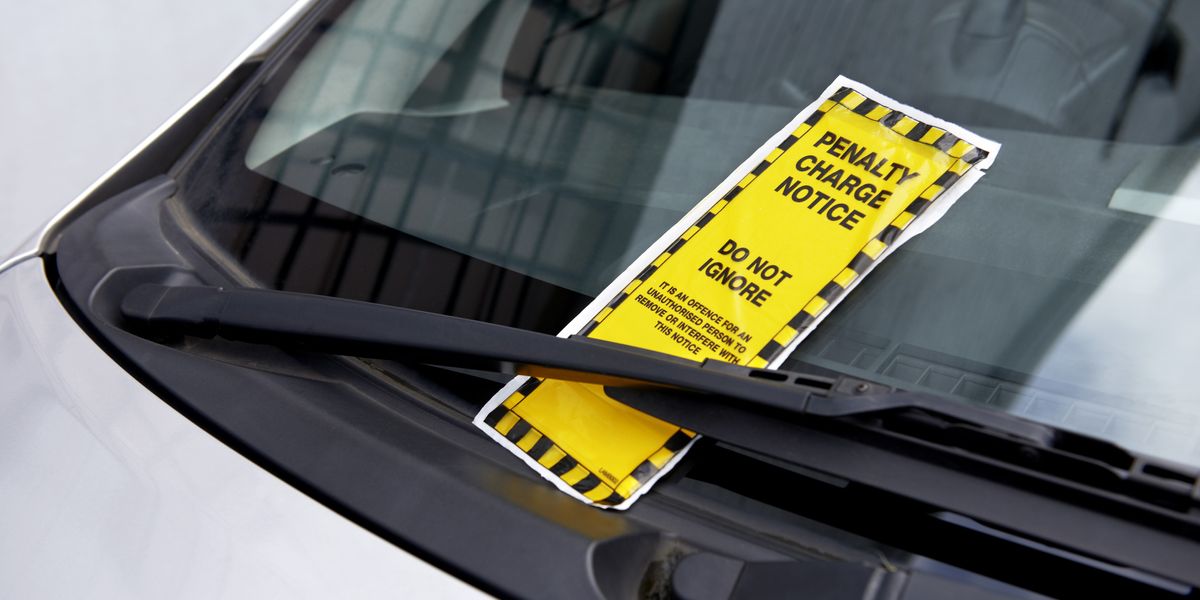Private parking firms have issued a staggering 41,000 tickets every day to drivers, according to new figures which have sparked calls for major reforms.
Analysis of Government data by PA and the RAC Foundation revealed that 3.8 million parking tickets were handed out between July and September this year.
The figures found that parking firms handed out on average 41,052 tickets daily to motorists across the UK, one of the highest numbers on record.
The tickets were distributed by private companies managing car parks at locations such as shopping centres, leisure facilities and motorway service areas.
Do you have a story you’d like to share? Get in touch by emailingmotoring@gbnews.uk
Drivers were slapped with 41,000 parking tickets every day, according to new data
GETTY
The surge in private parking enforcement has led to growing concerns about how the sector is being managed. The latest figures represent a 14 per cent increase from the 3.3 million tickets issued during the same period in 2023.
With each ticket carrying a potential penalty of up to £100, drivers could be facing combined daily costs of nearly £4.1million at the current rate.
Private parking businesses have faced accusations of using misleading and confusing signs, alongside aggressive debt collection practices. The data showed that 172 parking management businesses requested vehicle owner records from the DVLA in the three months to September.
ParkingEye emerged as the most active operator, purchasing 594,000 records from the DVLA which charges private companies £2.50 per vehicle owner record requested.
A Government attempt to regulate the sector through legislation has stalled, despite receiving royal assent in March 2019. The proposed Code of Conduct would have capped most parking tickets at £50, created a fairer appeals system and banned aggressive language on tickets.
While it was due to be implemented across Britain by the end of 2023, the Conservative Government withdrew the Code in June 2022 following a legal challenge from parking companies.
In response, industry bodies including the British Parking Association and International Parking Community launched their own code of practice in June, requiring consistent signage and unified rules for operators on private land.
However, motoring groups have criticised the voluntary code for failing to include charge caps or remove debt recovery fees.
READ MORE: Nigel Farage just issued stern warning over China but is it valid?
RAC Foundation director Steve Gooding offered a stark assessment of the situation stating: “Private parking is clearly one sector of the economy which appears to be booming but at the expense of millions of motorists each year.”
He questioned whether thousands of drivers were deliberately breaking parking rules each day. He added: “These numbers suggest that big questions remain about the way the current system is working – or failing.”
The British Parking Association defended the industry’s practices, with head of external affairs Isaac Occhipinti stating: “99.7 per cent of parking activities do not result in a parking charge.
“Private parking operators provide an essential service, ensuring motorists can park when and where they need. We strongly refute the speculative scare stories perpetuated by the RAC Foundation.”
LATEST DEVELOPMENTS:
The new Parking Code of Practice hopes to give drivers more leeway when it comes to facing fines
GETTY
Historical data reveals a steady increase in private parking tickets since 2018, rising from 1.7 million to the current 3.8 million between July and September.
The figures show particularly sharp increases after 2020, when 1.5 million tickets were issued, jumping to 2.1 million in 2021 and 2.9 million in 2022.
A spokesperson for the Ministry of Housing, Communities and Local Government said: “Motorists must be protected when using private car parks and we are determined to drive up standards in the industry.
“We know how much of an issue this is for drivers, which is why we will set out further details on the Private Parking Code of Practice as soon as possible.”

